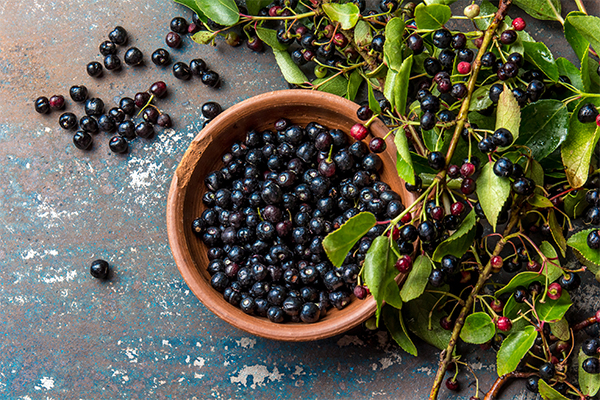Prevent inflammation by avoiding these 7 trigger foods
10/28/2019 / By Arsenio Toledo

Inflammation is the immune system’s response to harmful stimuli, such as damaged cells, germs, and irritants. This may sound benign, but inflammation can be very deadly and has been linked to eight of the 10 leading causes of death. Inflammatory responses can be triggered by a lot of things, and one of them is certain types of food.
Inflammatory responses to food build up over time and can result in a number of different health conditions. “Long-term, low-grade inflammation can persist in all of our cells and tissues, playing a key role in everything from acne to arthritis,” said Dr. Corey W. Kirshner.
The biggest culprits are processed foods and sugary treats, which are more likely to trigger inflammation. Here are several examples that you should avoid.
Alcohol
Excess alcohol in the body can cause changes in the lining of the intestine. This allows bacteria to enter the bloodstream and trigger an inflammatory response. Be sure to moderate your consumption or quit it altogether.
Soda
Soft drinks are filled with sugar as well as a preservative known as sodium benzoate. Not only do these ingredients cause inflammation, but they can also cause an array of health concerns, such as impaired motor functioning and cell damage. While diet soda may sound better, that simply replaces the sugar with artificial sweeteners, such as saccharine and sucralose, which can raise the risk for diseases such as Crohn’s disease and ulcerative colitis.
Instead of soda, try green tea or infuse your water with a fruit to give it taste.
Sweetened foods
As their name implies, sweetened foods are packed with sugars. They raise blood glucose levels that can cause inflammation. The body’s response will only be worse if you have any kind of glucose intolerance. Try and avoid artificially sweetened foods. Fruits, yogurt, and dark chocolate are great, healthy, sugarless alternatives.
Deep-fried and battered foods
Deep-frying, as its name implies, involves submerging food in oil. This causes a lot of unsaturated fats to turn into trans fats, which are difficult for your body to break down, leading to obesity. The food you’re frying can also be filled with refined carbs which, along with trans fats, lead to inflammation. Steaming, roasting, or baking are great alternatives to deep-frying that are healthier and can produce meals that can be just as delicious.
White flour
White flour also has a lot of refined carbohydrates. This means that the main ingredient in your white bread and your pasta can increase your risk of inflammation. Instead of buying white bread, look for nutritious, whole grain options like whole wheat, and whole-grain barley.
Processed meat
Processed meat is any kind of meat that has undergone some kind of modification to extend its shelf life. Smoking, salting, and curing are some common examples. This makes them “five-alarm fires when it comes to inflammation,” according to Kirshner, and should be avoided. (Related: Processed meat raises risk of diabetes, heart disease and cancer.)
Be sure to read the labels before buying any meat products. Grilled chicken, roast beef, and turkey are healthier alternatives.
Red meat
While less likely to cause inflammation compared to most processed meat, processed red meat can still cause a lot of negative effects on the body such as heart disease, kidney problems, and digestive issues. Kirshner instead recommends switching over to organic and grass-fed varieties of meat. This will make the meat less likely to contain pesticides, fertilizers, and other chemicals.
There are many foods out there that can cause inflammation. It’s important to learn which ones they are so that it’ll be easier to switch to a healthier diet – one that is less likely to cause inflammation, and the diseases that come with it. Read StopEatingPoison.com for more news about food toxins.
Sources include:
Submit a correction >>
Tagged Under:
alcohol, anti-diabetes, anti-obesity, artificial sweeteners, beer, cardiovascular health, clean food, deep frying, deep-fried food, diabetes, fightobesity, flour, food safety, heart health, immune system, inflammation, inflammatory disease, ingredients, liquor, longevity, prevention, red meat, refined carbohydrates, soda, sodium benzoate, soft drinks, sugar, sugary food, sweetened food, trans fats, unsaturated fats, white flour, wine
This article may contain statements that reflect the opinion of the author
RECENT NEWS & ARTICLES
COPYRIGHT © 2017 PREVENTDIABETES.NEWS
All content posted on this site is protected under Free Speech. PreventDiabetes.news is not responsible for content written by contributing authors. The information on this site is provided for educational and entertainment purposes only. It is not intended as a substitute for professional advice of any kind. PreventDiabetes.news assumes no responsibility for the use or misuse of this material. All trademarks, registered trademarks and service marks mentioned on this site are the property of their respective owners.





















